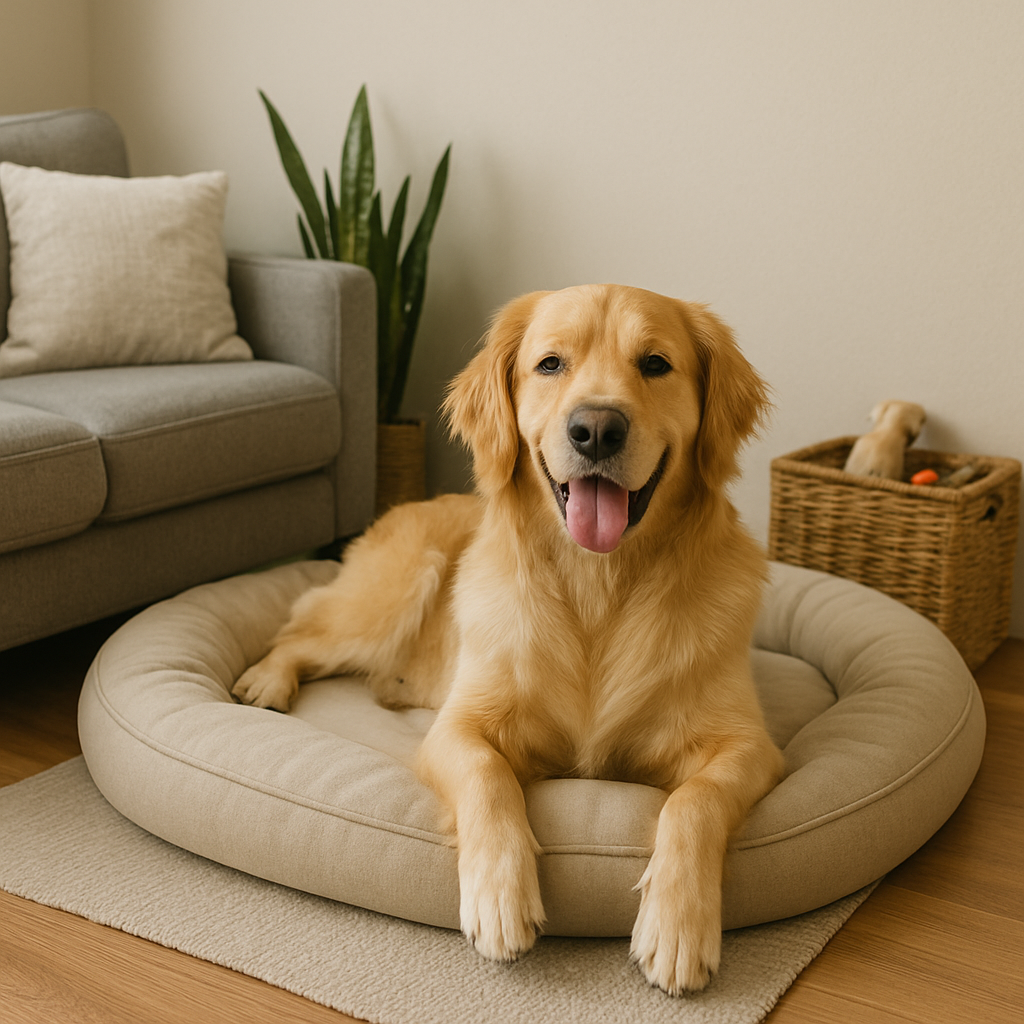Golden Retrievers are full of energy, curiosity, and playfulness—which means they need regular exercise to stay physically and mentally healthy. Without proper activity, your Golden can develop behavioral problems, gain excess weight, and even experience anxiety. But how much is “enough”? This article breaks down exactly how much—and what kind of—exercise your Golden Retriever needs to thrive.
Why Exercise Is Critical for Golden Retrievers
Golden Retrievers are classified as a sporting breed, originally developed for retrieving game in the field. They are athletic and high-energy dogs that require daily movement and engagement.
Benefits of Exercise:
- Prevents obesity and related health issues
- Reduces anxiety and destructive behavior
- Builds muscle and joint strength
- Stimulates the mind and curbs boredom
- Deepens the bond between you and your dog
Without exercise, even a well-trained Golden can become restless, bark excessively, chew furniture, or dig holes.
General Exercise Guidelines by Age
Golden Retrievers need different levels of exercise based on their age and life stage.
Puppies (up to 12–18 months):
- Rule of thumb: 5 minutes of exercise per month of age, up to twice daily
- For example, a 4-month-old pup = 20 minutes x 2 sessions
- Focus on short walks, gentle play, and basic training
- Avoid high-impact activity to protect growing joints
Adults (1–7 years):
- At least 60 to 90 minutes per day
- Mix structured walks with off-leash play or training games
- They thrive with variety—physical and mental activities combined
Seniors (7+ years):
- Still need daily movement, but adjust intensity
- Aim for 30–45 minutes, broken into multiple short sessions
- Include gentle walks, light fetch, and mental games
Always consult your vet before changing a senior dog’s routine.
Types of Exercise Your Golden Will Love
Golden Retrievers are versatile and enjoy a wide variety of physical activities.
Top Physical Activities:
- Walks and hikes: Great for daily structure
- Fetch and retrieval games: Perfect for short energy bursts
- Swimming: Low-impact and ideal for hot days
- Agility or flyball: Combine exercise with mental stimulation
- Tug-of-war: Builds strength and bonding
- Playdates with other dogs: Encourages socialization
Mixing different activities keeps your dog engaged and physically fit.
Don’t Forget Mental Exercise
Mental stimulation is just as tiring as physical exercise and just as important for a balanced dog.
Brain-Boosting Activities:
- Food puzzle toys or slow feeders
- Hide-and-seek with treats or toys
- New command training or trick sessions
- Scent work or nose games
- Rotation of toys to avoid boredom
Even 10–15 minutes of mental games a day can dramatically improve your Golden’s behavior and mood.
Signs Your Golden Retriever Needs More Exercise
Not sure if your dog is getting enough movement? Here are some clear signs they need more activity:
- Restlessness or pacing indoors
- Excessive barking or whining
- Chewing, digging, or other destructive behaviors
- Weight gain or lethargy
- Pulling on leash or being overly excitable on walks
These behaviors often disappear once a proper exercise routine is established.
Tips for Staying Consistent
Life can get busy, but consistency is key to a well-balanced dog.
How to Stay on Track:
- Create a daily routine with set walk/play times
- Use a checklist or pet care app to track activity
- Alternate who in the household takes responsibility
- Hire a dog walker or visit doggy daycare if you’re busy
- Keep a log of behavior changes related to activity levels
A little effort every day pays off in a happier, healthier dog.
Bad Weather? No Excuses
Rain, snow, or heat doesn’t have to stop your dog’s exercise.
Indoor Exercise Ideas:
- Tug-of-war or fetch in a hallway
- Training sessions with rewards
- Hide-and-seek around the house
- Use treadmills (specifically designed for dogs)
- Set up mini agility courses with furniture or cones
Golden Retrievers adapt well—as long as you make the effort.
Final Thoughts: Keep Their Body and Mind Moving
A well-exercised Golden Retriever is a calm, focused, and well-behaved companion. Whether they’re a playful pup or a mellow senior, they need regular exercise to live their best life. It’s not just about tiring them out—it’s about keeping them healthy, stimulated, and connected to you.
So grab the leash, the tennis ball, or a handful of treats—and help your Golden live a longer, happier life, one walk at a time.

